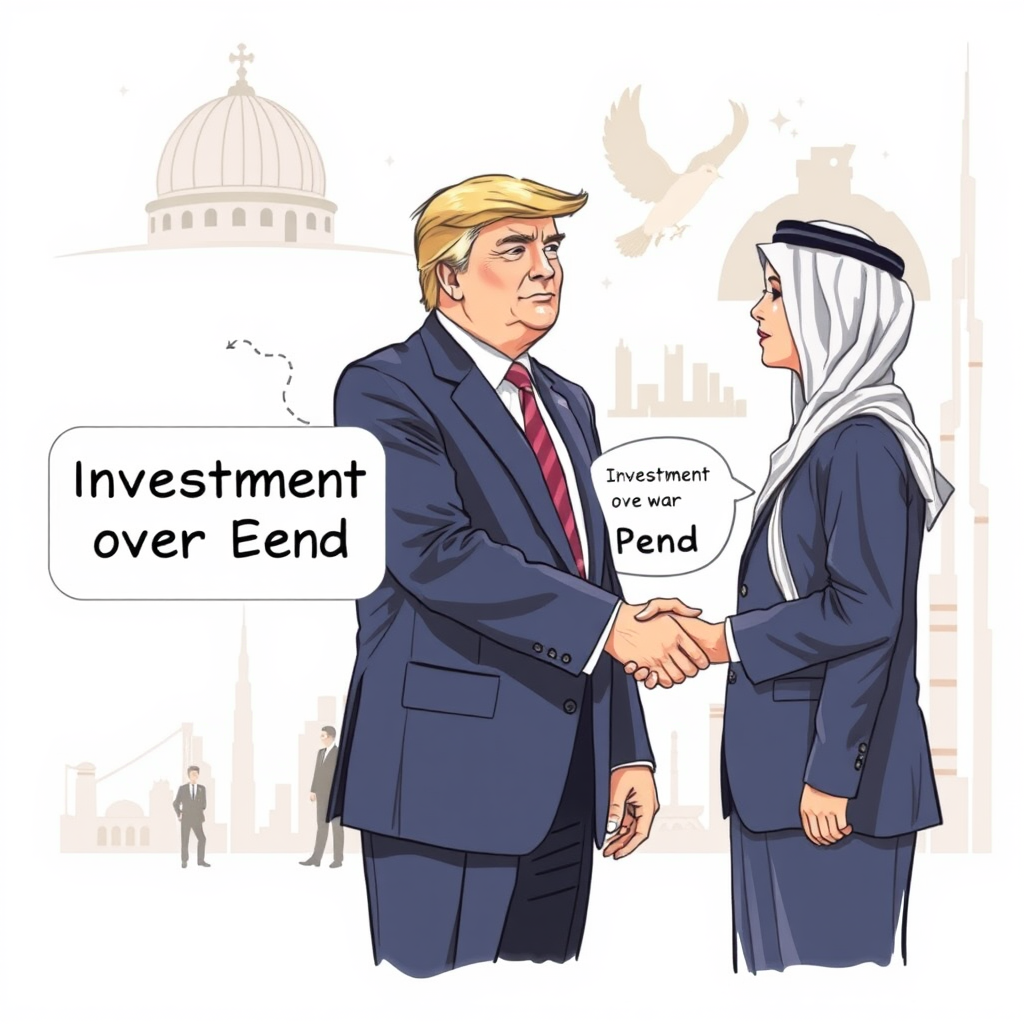Trump's Middle East Trip: Investment Over War End

President Trump has yet to achieve a diplomatic breakthrough to end the conflict in Gaza, and with his first significant international excursion of his second term on the horizon, his administration appears to be shifting its focus. Instead of pursuing peace agreements, the trip will prioritize fostering substantial business investments in the region, according to White House officials.
This strategic pivot is both pragmatic and somewhat disappointing. While securing economic deals can bolster regional stability and create jobs, it should not come at the expense of addressing the deep-seated conflicts that have plagued the Middle East for decades. Economic prosperity is a crucial component of lasting peace, but it is not a substitute for political resolution.
The administration’s emphasis on business deals reflects a broader trend in U.S. foreign policy, where economic engagement is seen as a key tool for influencing global dynamics. However, this approach risks oversimplifying complex geopolitical issues. Investments can foster cooperation, but they cannot replace the need for diplomatic efforts to resolve long-standing disputes.
Moreover, the success of economic initiatives often hinges on a stable political environment. Without addressing the root causes of conflict, any economic gains could be fragile and short-lived. The administration must strike a balance between economic diplomacy and traditional peace-building efforts to ensure sustainable progress in the region.
As President Trump embarks on this trip, it will be crucial for him to leverage economic opportunities while also pushing for meaningful dialogue and resolution on the ground. The world watches with hope that this visit will mark a step toward both economic development and lasting peace in the Middle East.